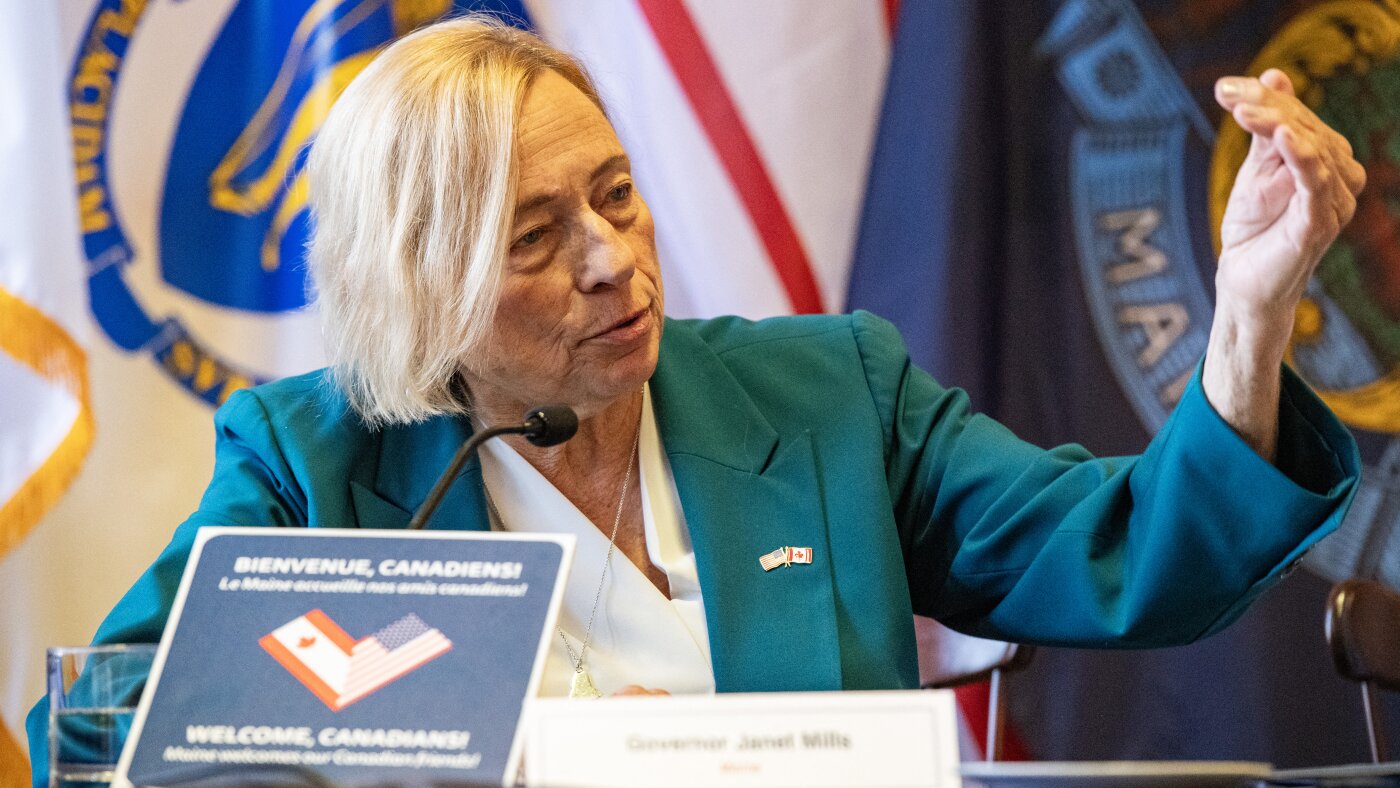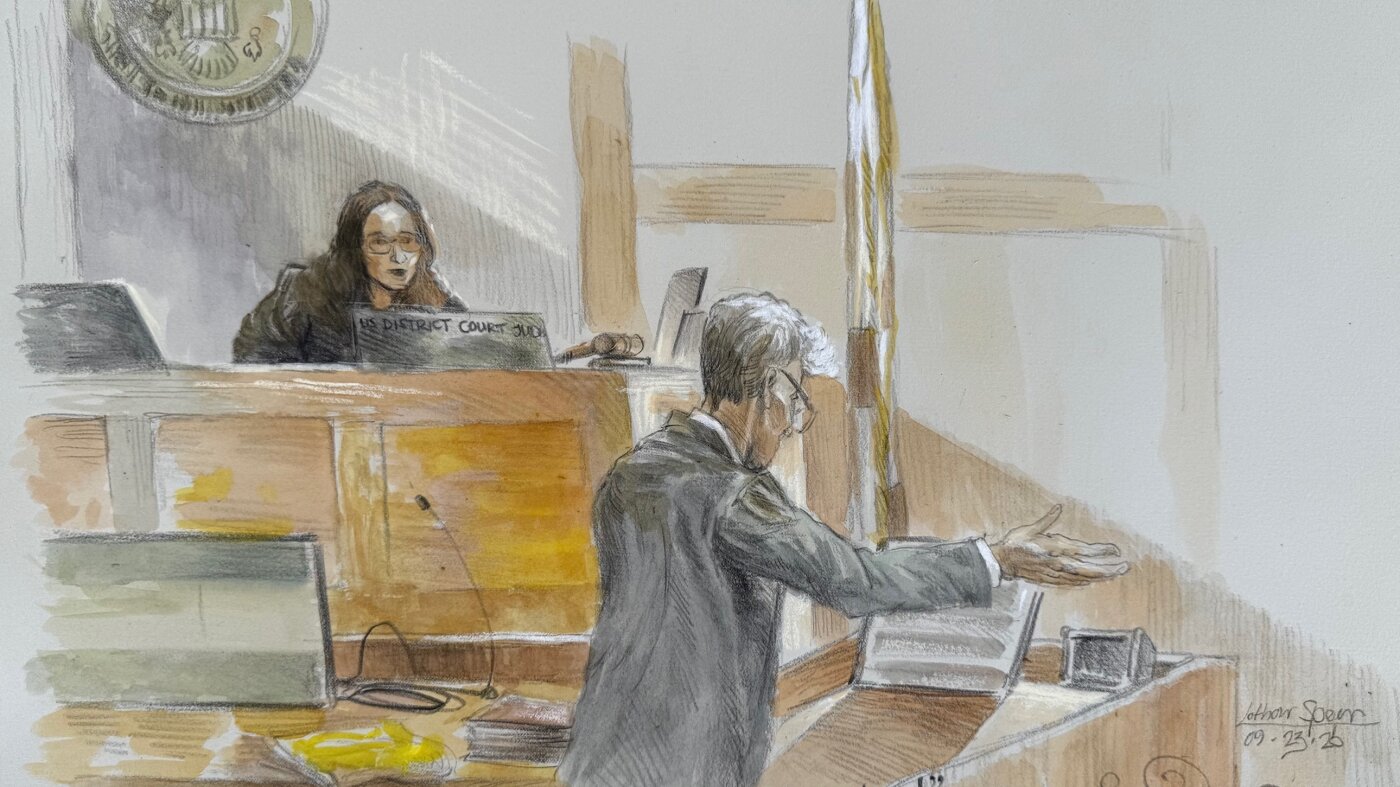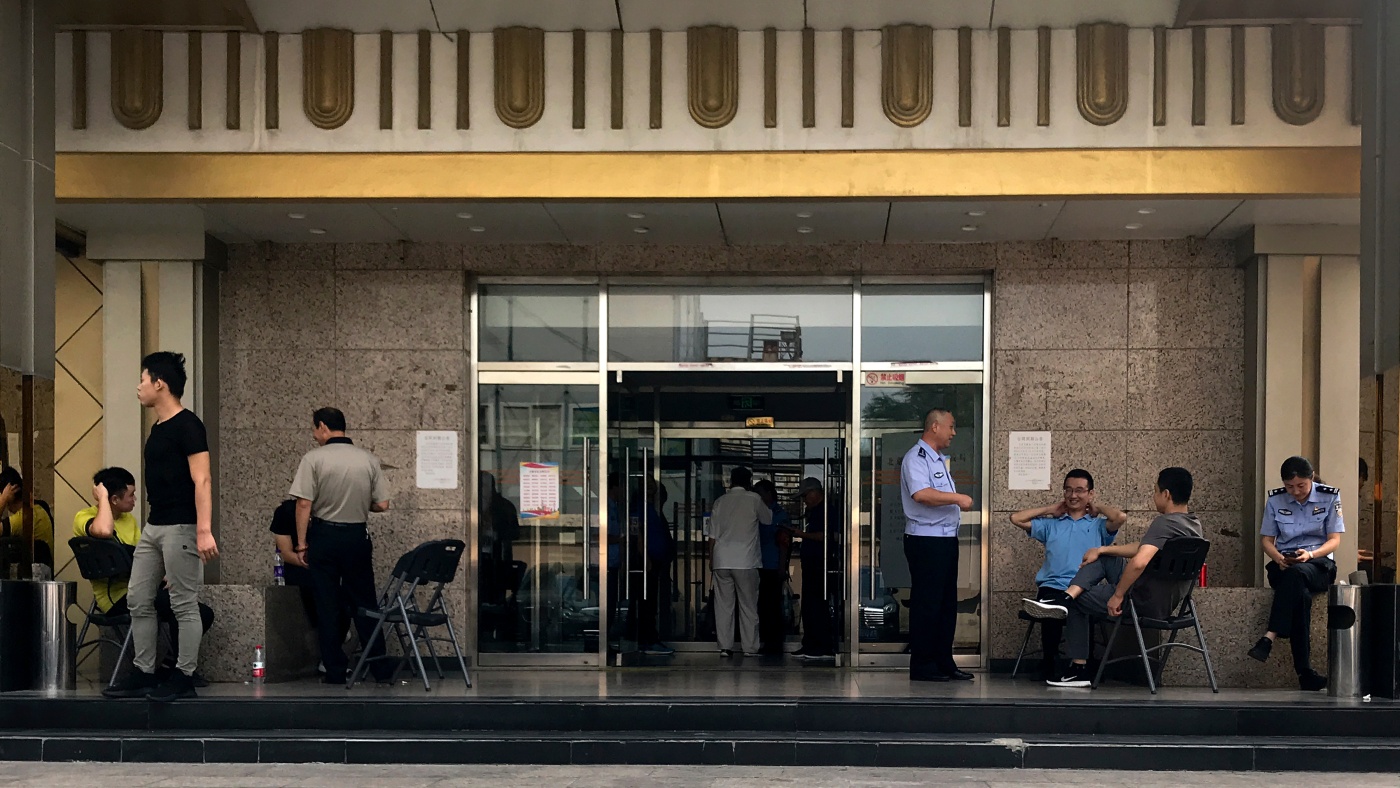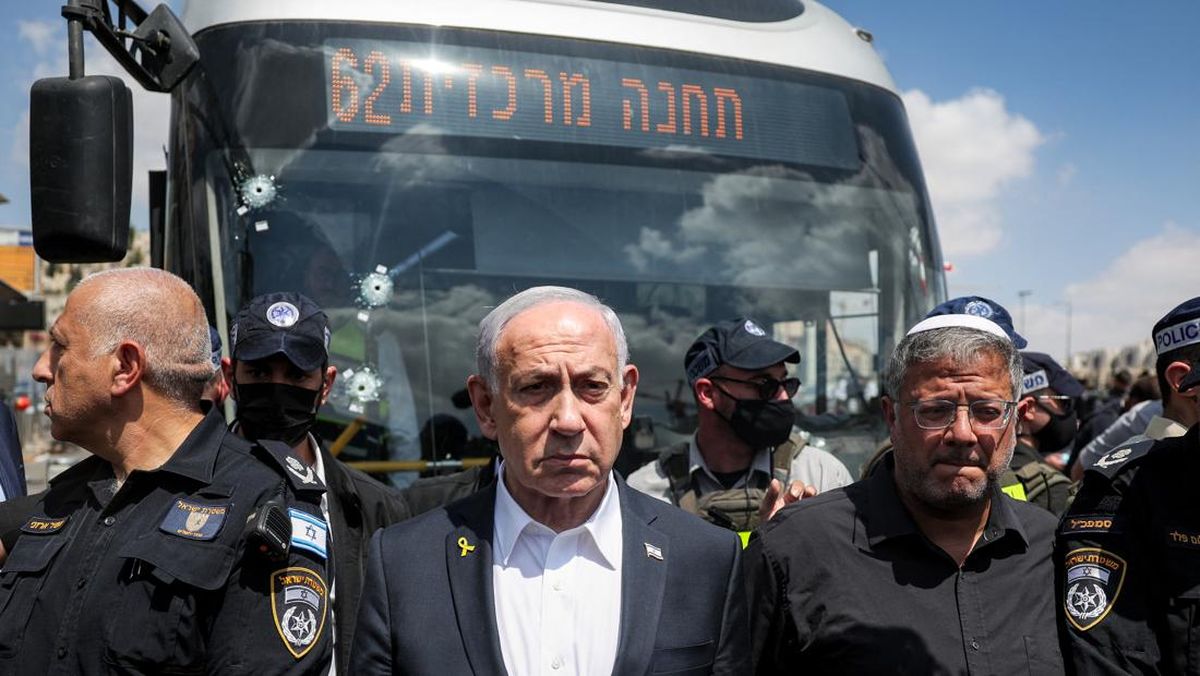
Trucks loaded with humanitarian aid on the Egyptian side of the Rafah crossing wait to cross into the Gaza Strip early on Oct. 15, 2025. STR/AFP via Getty Images hide caption
toggle caption
STR/AFP via Getty Images
AMMAN, Jordan — Israel on Wednesday kept closed a crucial border crossing from Egypt to Gaza and cut in half the amount of aid allowed to enter in retaliation for what it says are delays in the handover of hostage bodies by the militant group Hamas.
The exchange of Israeli hostages and Palestinian detainees and the handover of bodies was central to the U.S.-brokered ceasefire in Gaza agreed last week.
An Israeli security official, speaking on condition of anonymity because they were not authorized to speak publicly, told NPR that "contrary to reports, the Rafah Crossing did not open today."
Israeli media had reported that the Rafah crossing, closed since Israel seized the Gaza side of the crossing last year, would be reopened in accordance with the ceasefire agreement.
The ceasefire on Wednesday was largely holding, although Hamas described Israeli attacks in Gaza as violations of the agreement.
Israel pulled back forces last week but still retains control of more than 50% of the Gaza Strip. It warned Gazans not to approach anywhere where its forces are located, specifically warning of danger in six locations in the north and south of Gaza.
Israel for months has restricted shipments of food and medicine to the devastated Palestinian territory, whose borders it controls. It had pledged as part of the ceasefire to allow in 600 truckloads of humanitarian aid per day - the minimum amount aid organizations say is needed to keep famine from spreading.
Olga Cherevko, a spokesperson for the U.N. Office for the Coordination of Humanitarian Affairs in Gaza, said Tuesday that Israel had informed them they would allow only 300 aid trucks per day into Gaza starting Wednesday and it would continue to restrict fuel and gas shipments.
The Israeli military arm responsible for the border said restrictions were being taken because "Hamas violated the agreement regarding the release of the bodies of the hostages," according to Reuters.
Hamas has now handed over eight bodies to the international Red Cross for transfer to Israel. It has said it needs more time to recover another 20 bodies as after two years of intense Israeli airstrikes not all the burial sites are known.
Under the U.S.-brokered ceasefire agreement, if Hamas did not hand over the bodies by Monday it was obligated to share information and "exert maximum efforts" to carry out the handover as soon as possible.
On Monday, Hamas handed over the last 20 living hostages to Israel. In exchange Israel released about 1,700 prisoners, including women and children, taken from Gaza and held without charge. Israel also freed 242 Palestinian prisoners serving long-term sentences, sending more than half of them into exile.
Despite an agreed formula of Israel handing over 15 bodies of Palestinians for every Israeli body it receives, only the remains of 45 Palestinians have been handed over.
Abu Bakr Bashir contributed reporting from Sheffield, England, and Shir David contributed reporting from Tel Aviv.

 3 months ago
71
3 months ago
71


















































